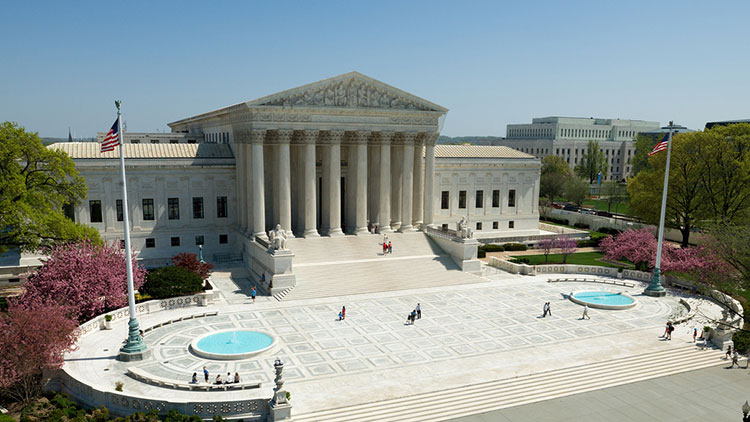Supremes Preserve PTO Ammo Against Patent Trolls

The Supreme Court has upheld the right of the Patent & Trademark Office (PTO) to reconsider its grant of a patent, referred to as an "inter partes" review, or essentially a second look at an earlier patent grant and the ability to cancel an already-issued patent in limited circumstance.
That came in a case involving a patent for oil-drilling technology, but it has implications for reining in patent trolls.
The decision was 7-2 with Justice Stephen Breyer concurring and Chief Justice John Roberts and Justice Neil Gorsuch dissenting, the court found that patent revocation does not have to be tried in court before a jury.
"[T]he fact that American courts have traditionally adjudicated patent validity in this country does not mean that they must forever do so," the majority concluded. "That Congress chose the courts in the past does not foreclose its choice of the PTO today."
"The decision to grant a patent is a matter involving public rights," they said. "Inter partes review is simply a reconsideration of that grant, and Congress has permissibly reserved the PTO’s authority to conduct that reconsideration."
"The USPTO is carefully considering the Supreme Court’s decisions and determining their impact on various proceedings at the Patent Trial and Appeal Board.," said Paul Fucito, PTO press secretary.
The Computer & Communications Industry Association, whose members include Facebook, Amazon, Netflix and Google, was pleased.
Broadcasting & Cable Newsletter
The smarter way to stay on top of broadcasting and cable industry. Sign up below
"This [inter partes] review process has given those fighting patent troll lawsuits a way to petition to revoke low quality patents often used by patent trolls," CCIA said.
“In upholding the ‘inter partes review’ process, the Supreme Court has rightly rejected the idea that a patent that was mistakenly granted cannot be rescinded without a laborious judicial procedure," said John Bergmayer, senior counsel at Public Knowledge. “Had this case gone the other way, not only would the courts be clogged up with disputes that can be resolved more reasonably by the patent office itself, the holders of invalid patents would be able to more easily collect windfall payments for ‘inventions’ that don't really exist -- with consumers ultimately paying the costs."
“The inter partes review procedures, or IPR, were the bedrock of the America Invents Act," said Software & Information Industry Association president Ken Wasch. "They allow the U.S. Patent and Trademark Office to take a second look at patents that may have been mistakenly issued. Today, the Supreme Court upheld both the right of Congress to regulate and reform the patent system, and the ability of our members to bring challenges to poor-quality patents so they can continue to innovate without spending millions in unnecessary litigation.”
Josh Malone, a fellow with patent rights advocate US Inventor saw it quite differently. "If a big corporation wants your patents or your land, they only need to convince their friends in the administrative tribunal or city council to do the job. No judge, no jury, no America," he said, calling the decision devastating decision for "inventors, aspiring inventors and patriots."
Malone was essentially echoing the dissents of Roberts and Gorsuch, in which Gorsuch wrote: "Can a political appointee and his administrative agents, instead of an independent judge, resolve the [patent] dispute? The Court says yes. Respectfully, I disagree."
Contributing editor John Eggerton has been an editor and/or writer on media regulation, legislation and policy for over four decades, including covering the FCC, FTC, Congress, the major media trade associations, and the federal courts. In addition to Multichannel News and Broadcasting + Cable, his work has appeared in Radio World, TV Technology, TV Fax, This Week in Consumer Electronics, Variety and the Encyclopedia Britannica.

